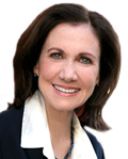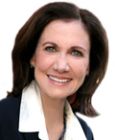Aging
The Secret to Aging Well – Not Keeping It a Secret!
Women are growing increasingly proud to celebrate their true age.
Posted May 14, 2012
One thing that continues to surprise me is how shocked people (especially other women) seem when I admit my age.
With such frequent public displays of midlife success — think Streep at 62 on the cover of Vogue or Madonna at 53 performing during this year's Super Bowl — you would think that a woman's age need no longer be kept secret.
Yet, I still sense discomfort as I announce my age, especially amongst people who interview me for magazines, radio or television. Maybe it's that 58 just sounds so old to them — journalists appear so young these days — but its seem less about my age than about being so open about it all. Am I giving something away that I shouldn't? Is this some holdover from times past, when good etiquette meant never asking a women her age?
Among the women I know, I find there is a growing sense of pride about reaching the sixth decade of life. While many of us may have once lied about hitting middle age and beyond, shaving a couple of years off milestones after the big 4-0, the tide seems to be turning. In fact, I predict that in the near future, there will be more men and women who feel as I do, not only proud about their age, but eager to celebrate it as an accomplishment, a sign of health and longevity.
Let me go back a bit to explain how this trend has developed. Over a year ago, I wrote a post here, "Does Authenticity Matter Any More?" in which I predicted mounting aversion to the lack of honesty when it came to aging -- not just about owning up to one's birth date, but about who middle aged people really were. "Does she or doesn't she?" the furtive question once asked about a woman's hair color had morphed into "Has she or hasn't she?" — the new uncertainty about what I called women's "youthenized" faces and bodies. Midlife women were beginning to wonder if they would be able to -- or even want to --- model themselves after images being portrayed in the media.
A little while later in "When It Comes to Aging, Real is Really In," I talked about Hollywood catching on to this trend toward authenticity. As filmmakers began asking for real-looking actors, casting agents started turning away those with puffed up lips, frozen smiles and too much plastic surgery. And Madison Ave was joining the bandwagon, selecting more age appropriate models for ad campaigns aimed at the Boomer population.
Celebrities themselves — led by Kate Winslet and Rachel Weisz — began protesting against being misrepresented in overly photoshopped images. While some cynics said, "sure, that's what these actresses feel now," even fashion editors began curtailing excessive airbrushing and digital alterations in their magazines. In "Is Photoshop Destroying America's Body Image," I wrote that the media seemed to be finally responding to the growing taste for reality and the desire to view models with whom everyday people could identify. And, in another post, "The Culture of Anti-Aging," I described the increasingly numbers of people becoming annoyed by dictates to "deny and defy" the aging process, to "turn back the clock" at all costs. They were becoming more vocal about wanting to shift the focus from looking younger to feeling and looking their best. A movement had started and was gaining momentum.
I know I'm not alone in this trend toward authenticity -- neither in its prediction or direction. In 2011, Sundance premiered Miss Representation, a documentary about the distortion of women in the media. The same year, the "Beauty CULTure" exhibit (recently shown at NY's Tribeca Film Festival) warned that women's body image was being conditioned to fit unattainable and unhealthy standards. The film attached to the exhibit, narrated by Jamie Lee Curtis, shows the damaging results of these beauty driven times through graphic and disturbing 'before and after' imagery. Ms. Curtis recently wrote an article called, "Anti-Anti" that got a huge response as she described the foolishness of using the phrase 'anti-aging.' It's a term we've grown so used to in the media that we barely notice its inherent contradiction.
And there is the mounting evidence elsewhere that the tide is turning in celebrating age. There are women like Julianne Moore, Julianna Margolies, and of course Streep, who have been gracing recent covers of fashion magazines, a domain once off limits to anyone middle-aged. And what about Ellen DeGeneres, who to many represents authenticity in more ways than just age, being chosen to promote CoverGirl Cosmetics, a company that in the past was known to use perfect looking, young (not to mention straight) fashion models to promote its products.
Then there are the dozen or so midlifers making it to the big screen, playing major roles as aging women. Several were nominated for Golden Globes and Academy Awards. There's Streep again, who took home the trophy for Iron Lady. And Glenn Close, a nominee, who played an aging transsexual, bringing authenticity a step further in her role in Albert Nobbs. On the smaller screen, the list is long: from Laura Linney to Mary Louise Parker to Edie Falco to Laura Dern. All are playing complex, and, yes beautiful, women. In music, of course, there is Bjork, yes, still singing strong at age 46, and the ever-reinventing Madonna, rocking out her older, but incredibly fit body, as if to shout out that midlife women "just wanna have fun!" Do any of these women feel the need to lie about their age anymore? I think not.
It was not that long ago that reaching midlife meant becoming invisible, being over the hill or done. Aging was associated with a vulnerability to rejection both personally and professionally, and was to be avoided at all costs. And not just by lying about birth dates, but doing whatever had to be done to look young again, even if it led to chronic use of cosmetic procedures or permanent alterations through plastic surgery.
Contemporary culture has now given us the opportunity to live longer with increasing possibilities for rich and enriching lives. And as we do, we are witnessing change before our eyes in terms of how aging is being portrayed and experienced. Just look at the most recent selection of 90-year-old Iris Apfel to be the 'face' of MAC cosmetics. If that choice doesn't say we are to 'be proud,' of our age, what does?
My mother-in-law, Marcia, will be 95 soon. Her husband, Arthur, is turning 100 in August. They are both eager to throw a huge party to celebrate their birthdays. Arthur often says, in a clear strong voice, "if tomorrow is as good as today, then we have a lot to look forward to." Although they only have a couple of peers with whom to share their celebration, they will be joined by their two sons and wives, six grandchildren and two great grandchildren. Arthur and Marcia are a proud couple -- independent, strong and emotionally engaged. We are all in awe of them and their ability to have aged so gracefully. They feel they have just gotten older.
So, when I turn 59 around the time my in-laws reach 95 and 100, I'll be thinking how lucky we all are to have reasons to celebrate, hiding neither our pride, or our ages!
How do you feel when someone asks how old you are? Do you tell them your real age?
Vivian Diller, Ph.D. is a psychologist in private practice in New York City. She serves as a media expert on various psychological topics and as a consultant to companies promoting health, beauty and cosmetic products. Her book, Face It: What Women Really Feel As Their Looks Change (2010), edited by Michele Willens, is a psychological guide to help women deal with the emotions brought on by their changing appearances.
For more information, please visit my website at www.VivianDiller.com and continue the conversation on Twitter at DrVDiller.




